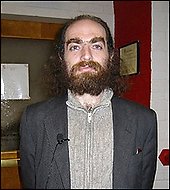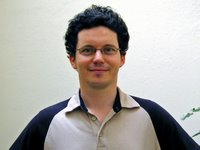Who is the best in math?
The novelty this time is that one of the mathematicians who received the world's highest honor - a Russian mathematician by the name of Grigory (aka Grishka) Perelman - actually refused the award. Apparently, a Fields Medal has never been turned down before. Grishka seems to be a bit of an eccentric. He is described as “a reclusive Russian genius” who claims to have cracked one of history's toughest math problems – a famous and intractable century old mathematical problem, known as the Poincaré conjecture, about the nature of space.
Even after reading this NYTimes article which tries to explain why this is an important breakthrough, I do not believe I get a good grasp of the whole thing but I take their word for it – this is big news.
From my layman perspective, I find the whole thing about Grishka pretty funny. He seems like a caricature of a Russian mathematician, doesn’t he? Like the Rasputin of mathematics. 
I have know about the Fields Medal for some time because I happen to hang out with mathematicians. The Medal is awarded every 4 years, and secondly and the winners cannot be over the age of 40. Fields Medals have generally been awarded for a body of work.
This year, the other winners are an American-Russian (Andrei Okounkov), an Australian, Terence Tao (
I had been told by some French mathematician relative of mine that the French have an excellent reputation in the world of mathematics. One may think this may be some jingoistic wishful thinking but the Fields Medal award gives a chance for some objective view and it is quite clear that, yes indeed the French are in a good position. Of course, the U.S. is leading but the last two are actually Russians who emigrated to the U.S.
Out of 48 medal delivered since 1936, the results are the following:
- USA: 13 (27%)
- France.: 9 (19%)
- Russia/USSR : 7 (14.5%)
- GB: 7 (14.5%).
Interestingly, all the French winners have been to the same school (a Grande Ecole, called L’Ecole Normale Supérieure (also known by its acronym of ENS), probably the most prestigious higher education establishment in
 Recently, I had a discussion on why
Recently, I had a discussion on why
0 Comments:
Post a Comment
<< Home